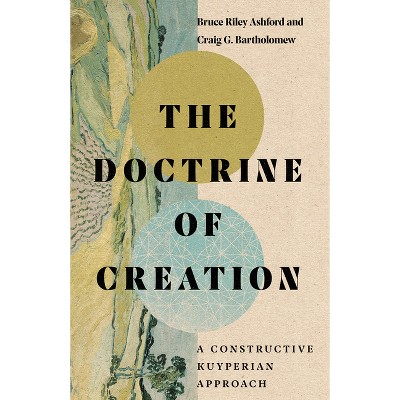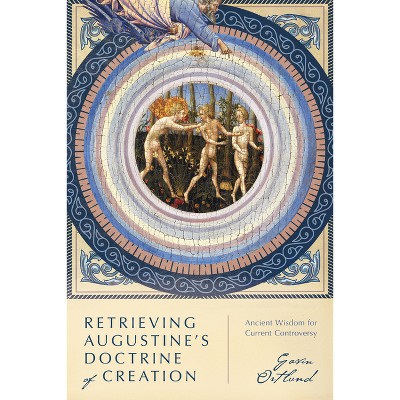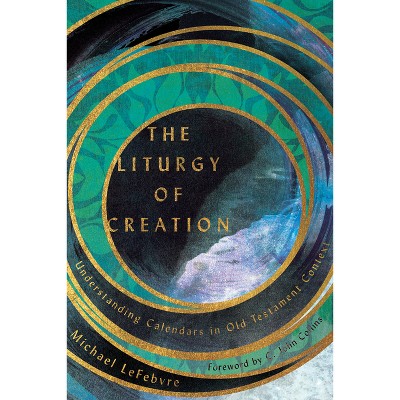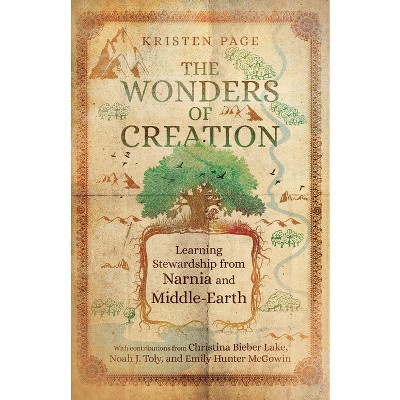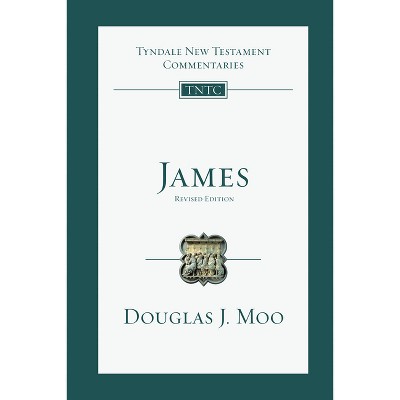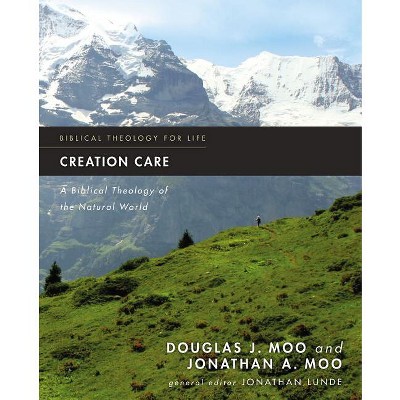Sponsored

Let Creation Rejoice - by Jonathan A Moo & Robert S White (Paperback)
In Stock
Sponsored
About this item
Highlights
- "Let all creation rejoice before the LORD, for he comes.
- About the Author: Robert S. White (PhD, Cambridge) is professor of geophysics in the University of Cambridge and a fellow of the Royal Society.
- 187 Pages
- Religion + Beliefs, Religion & Science
Description
About the Book
The Bible is full of images of God caring for his creation in all its complexity. Yet experts warn us that a so-called perfect storm of factors threatens the future of life on earth. The authors assess the evidence for climate change and other threats that our planet faces in the coming decades while pointing to the hope God offers the world and the people he made.
Book Synopsis
"Let all creation rejoice before the LORD, for he comes." Psalm 96:13The Bible is bathed with images of God caring for his creation in all its complexity. Yet in the face of climate change and other environmental trends, philosophers, filmmakers, environmentalists, politicians and senior scientists increasingly resort to apocalyptic rhetoric to warn us that a so-called perfect storm of factors threatens the future of life on earth. Jonathan Moo and Robert White ask, "Do these dire predictions amount to nothing more than ideological scaremongering, perhaps hyped-up for political or personal ends? Or are there good reasons for thinking that we may indeed be facing a crisis unprecedented in its scale and in the severity of its effects?"The authors encourage us to assess the evidence for ourselves. Their own conclusion is that there is in fact plenty of cause for concern. Climate change, they suggest, is potentially the most far-reaching threat that our planet faces in the coming decades, and also the most publicized. But there is a wide range of much more obvious, interrelated and damaging effects that a growing number of people, consuming more and more, are having on the planet upon which we all depend.Yet if the Christian gospel fundamentally reorients us in our relationship to God and his world, then there ought to be something radically distinctive about our attitude and approach to such threats. In short, there ought to be a place for hope. And there ought to be a place for Christians to participate in that hope. Moo and White therefore reflect on the difference the Bible's vision of the future of all of creation makes.Why should creation rejoice? Because God loves and cares the world he made.
Review Quotes
"Let Creation Rejoice serves as a much-needed corrective to divisive discussions on climate change. Moo and White lay out a helpful survey of the current condition of the Earth and the causes of that condition, then go on to explain the biblical perspective and how our future hope speaks into our present situation."
--Relevant Magazine, May/June 2014"At a time when Earth's environmental problems can seem insurmountable, Jonathan Moo and Robert White present a case for Christians to look forward with both hope and diligence in their efforts to care for God's creation. Their vision of biblical hope does not gloss over the grim realities of the damage that has been done to our world by human destruction, pollution, and overexploitation of resources. Let Creation Rejoice is structured upon the idea that Christians are called to both joy and lament--to a hope based on the promises of God's kingdom and to groaning alongside all creation."
--Abbie C. Schrotenboer, Perspectives on Science and Christian Faith, Vol. 66, No. 4"At the center of [the author's] theology is hope for the future. This makes their approach distinct from someone who cares about our planet but does not have faith in God. It is also distinct from a believer who argues from something other than eschatology. They want readers to know and understand that the problem we face is colossal, but as long as we trust in God there is always hope."
--Scott Elliott, Englewood Review of Books, Eastertide 2014"Reviewing the environmental issues on today's agenda, including climate change, the authors conclude that there are sound reasons for thinking we face challenges of unprecedented magnitude. But they articulate a gospel hope that discourages fatalism and fanaticism alike."
--Christianity Today, July/August 2014"The mix of environmental awareness and activism with a Christian sense of mission is by no means new, but these authors bring Cambridge credentials, brevity, and an unusually buoyant feeling of faith to their task. . . . This work is written with deftness and care and should exert an appeal to many church groups and individual seekers."
--Library Journal, May 15, 2014About the Author
Robert S. White (PhD, Cambridge) is professor of geophysics in the University of Cambridge and a fellow of the Royal Society. He is the author of Creation in Crisis (SPCK) and numerous other books and articles.
Jonathan A. Moo (PhD, Cambridge) is assistant professor of biblical studies at Whitworth University in Spokane, Washington. He holds graduate degrees in wildlife ecology along with theology. He is the author of Creation, Nature and Hope in 4 Ezra and numerous articles.
Shipping details
Return details
Frequently bought together






Trending Non-Fiction






